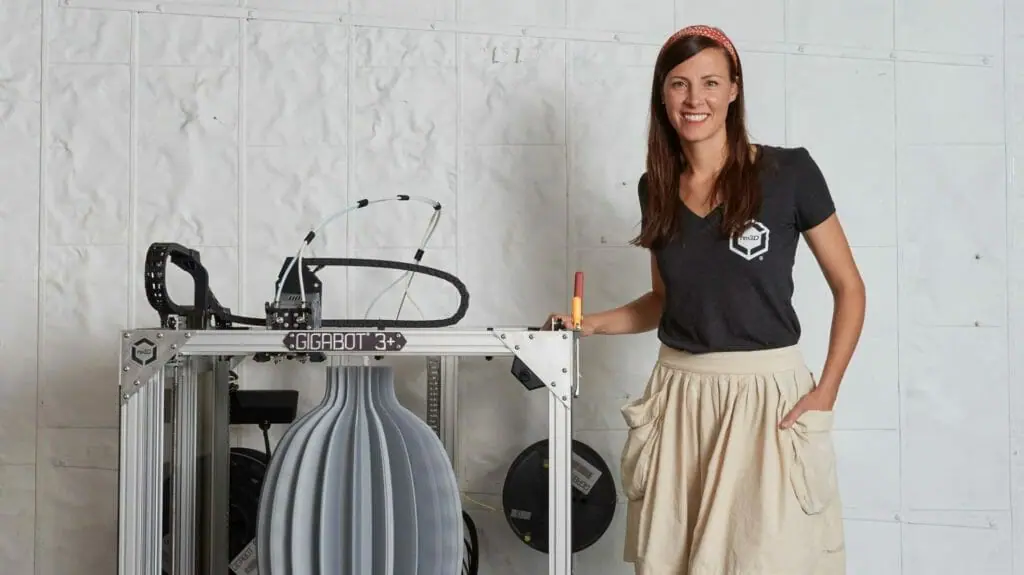
We believe in economic empowerment, accessibility, and employment opportunities.
Samantha Snabes, co-founder and CEO of re:3D INC, United States of America
Samantha Snabes, 2022 WE Empower finalist, Europe and North America

With experience as a volunteer, a firefighter, a NASA employee, and an officer in the Air National Guard, Samantha Snabes is a women entrepreneur using her unique lived experiences to inform and scale her business. Snabes, CEO of re: 3D, set out to “decimate cost/scale barriers to 3D printing” and in doing so has created the capacity for jobs, education, and provided new outlets to reverse the negative impacts of climate change. In 2013, Gigabot was born as the first true affordable 3D printing machine to give access to people all around the world, and to tear down the barriers between wealth and technology. Aligning with UN SDG 9: Industry, Innovation and Infrastructure , UN SDG 11: Sustainable Cities and Communities, and UN SDG 12: Responsible Consumption and Production re:3D is providing the opportunity to create accessible products from plastic waste in a commanding and sustainable way whilst creating jobs that supply high end tech training.
Industry, innovation and infrastructure

Re: 3D innovative printers are now available in more than 50 separate countries and are used in a wide array of industries such as education and manufacturing . This innovation opens the door to a reduction of poverty and adds fuel to economic recovery and growth by illustrating a new found technological advancement. re:3D also donates a printer to someone attempting to make a difference for every 100 printer units ordered and delivered.
Sustainable cities and communities
Through its 3D printing products, re:3D provided support during COVID 19 by supplying products and ensuring that proper PPE was provided to workers in need, especially those in areas who were at a greater risk of coming in contact with the virus. Alongside this was donations of 3D printed PPE to small businesses, restaurants, and more to ensure establishments could open safely. This became known as the campaign PPE for the People. Re:3D also supported those who lost jobs during the COVID 19 pandemic through providing well rounded technical vocational training on the machines and otherwise - in 2021 alone the team did 500+ hours of outreach to over 5000 people.
Responsible consumption and production
re:3D machines are designed to have the capability to be upgraded, are locally manufactured, and have replaceable components. This ensures the machines are designed with the ideals of longevity and recyclability in mind. This sense of design creates a product that mitigates any potential negative impacts that could spur from manufacturing. Responsible consumption and production is further promoted through the use of plastic waste to make new products using plastic pellets and flakes in the Gigabot X. This was the original goal of re:3D that has finally coming to fruition in the past 2 years through the phase 1 grant from the National Science Foundation., and furthermore the phase 2 award allowed the further advancement of this project “to develop an entire ecosystem to grind, dry, and feed plastic waste into the Gigabot X”.
As we think about circular waste economies, it’s not waste, it is a resource. So this water bottle could be a resource right now, its costing money to dispose of it [and] it may take forever to degrade, but waste is such a valuable resource and right now it is sitting and taking up space and costing communities money and it could be leveraged to create new jobs and more resilient circular economies.
Samantha Snabes, 3D Printing from Plastic Waste
By Samantha Studstill